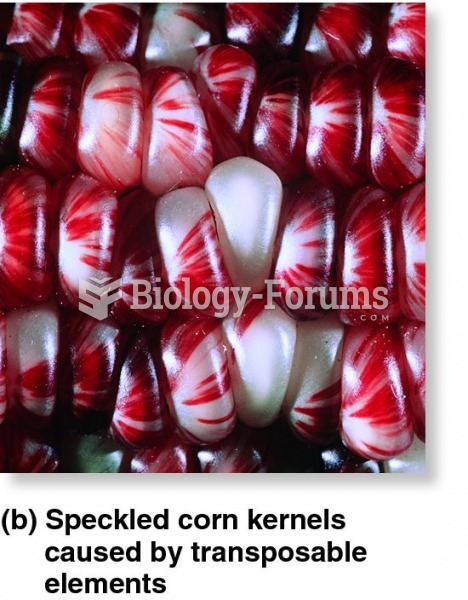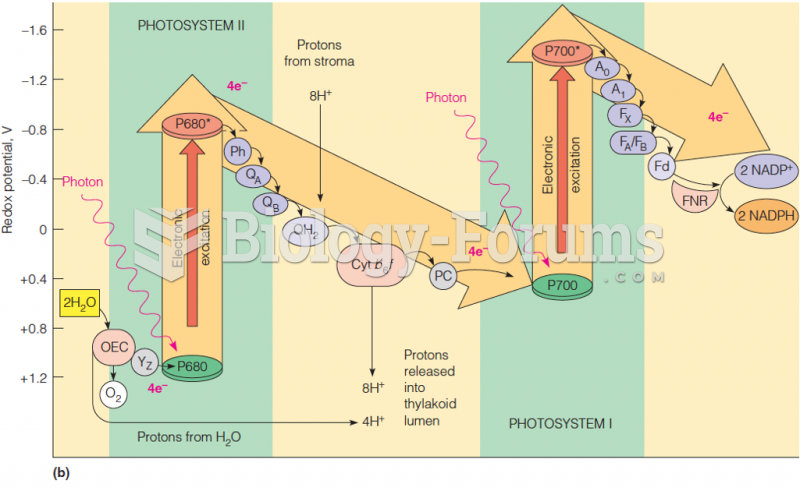|
|
|
Amphetamine poisoning can cause intravascular coagulation, circulatory collapse, rhabdomyolysis, ischemic colitis, acute psychosis, hyperthermia, respiratory distress syndrome, and pericarditis.
On average, someone in the United States has a stroke about every 40 seconds. This is about 795,000 people per year.
There are more nerve cells in one human brain than there are stars in the Milky Way.
About one in five American adults and teenagers have had a genital herpes infection—and most of them don't know it. People with genital herpes have at least twice the risk of becoming infected with HIV if exposed to it than those people who do not have genital herpes.
Cancer has been around as long as humankind, but only in the second half of the twentieth century did the number of cancer cases explode.







